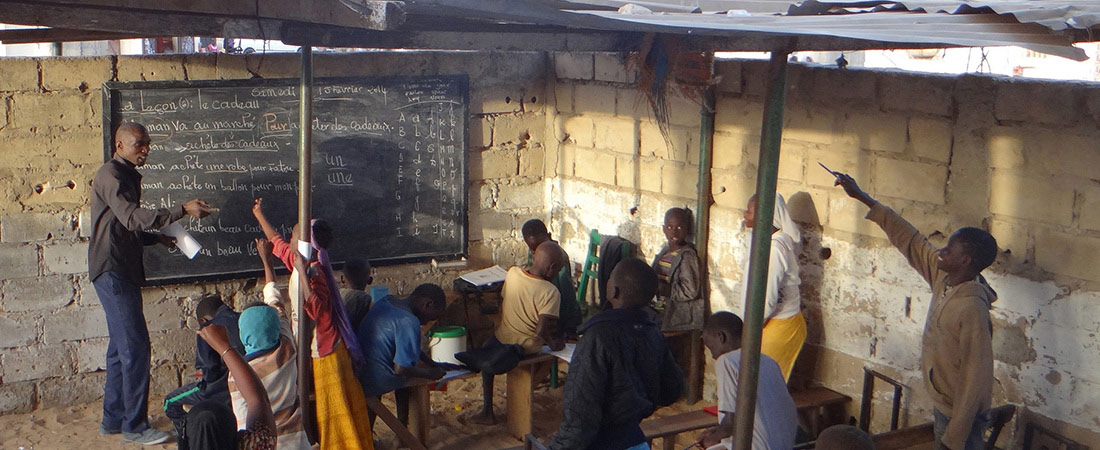Boosting Literacy in Senegal

In Senegal, struggling young readers have a hard time getting the support they need. Opportunities for extra tutoring and teacher instruction are limited, and 90 percent of schools lack libraries or reading rooms. As a result, many students who have not learned to read by grade 3 leave school.
EDC has found that promoting literacy can be a shared community effort. Through the USAID-funded Harnessing Youth Volunteers as Literacy Leaders (HYVALL) program, students, parents, and volunteers worked together to help children learn to read. The report Youth Volunteers Can Contribute to Significant Reading Gains summarizes a recent study of HYVALL’s community-based approach to literacy.
HYVALL brought together 395 volunteer literacy tutors—who were trained by EDC and the YMCA of Senegal—and 6,260 students in grades 1 through 6. Using reading materials and structured activity guides provided by the program, tutors led small-group activities designed to build students’ reading, writing, and comprehension skills. Sessions met twice a week for 18 months.
Tutors also conducted monthly home visits to introduce students’ families to quick literacy-building activities, such as encouraging reading and writing and asking students to retell a story they had heard during the day’s lesson.
EDC researchers compared the literacy performance of 205 students who participated in HYVALL with 127 students who did not. They found that HYVALL students read more fluently and understood more of what they were reading than students who did not have the extra support. In particular, the project was shown to have had a strong, positive impact on the literacy skills of young girls.
EDC’s Nathalie Louge, one of the authors of the report, says that the study’s findings illustrate the benefits of using community volunteers to help struggling readers boost their literacy skills.
“This is a huge finding for low-resource environments, where parents often do not have the extra money to pay for afterschool tutors,” she says. “It’s also worth noting that volunteers gain teaching experience themselves and become recognized in their communities as valuable resources.”
Photo credit: Rina Dhalla, USAID.